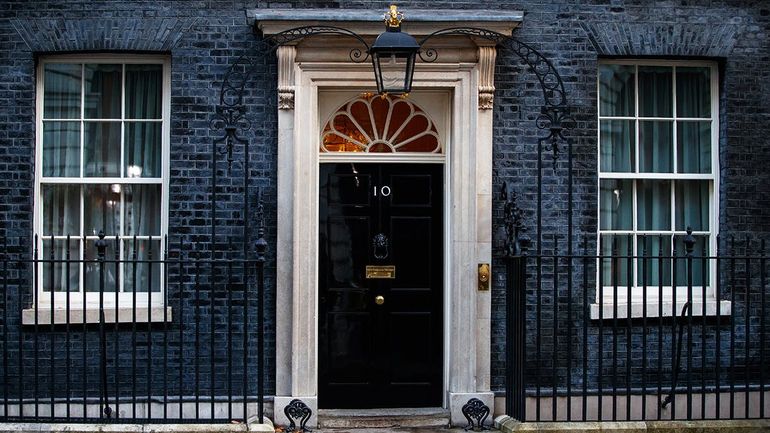
Implications of the 2024 Budget on Brand Strategies

Explore the impacts of the Spring 2024 budget on brand strategies, including key changes affecting small businesses, vaping regulations, and pub industry dynamics. Discover how the budget announcements shape the landscape for brands in the upcoming year.
Number 10 Downing Street
Chancellor of the Exchequer Jeremy Hunt has set out the government’s budget plans, laying out a slate of changes that will affect businesses and workers across the UK.
Hunt delivered his Spring budget to parliament today (6 March) with a clear message: "lower taxes mean higher growth."
The reduction in National Insurance is the highlight of the tax cuts, dropping from 10% to 8% next month. Hunt stated that this change will result in an average annual savings of £450 for the average worker.
Good news for the hospitality sector, especially pubs, as alcohol duty will remain frozen until February 2025. It was originally set to increase by 3% in August.
Additionally, the 5p reduction in fuel duty, which was supposed to end this month, has now been prolonged.
The Chancellor announced plans to provide more support for small businesses by raising the VAT threshold from £85,000 to £90,000. This change is aimed at reducing the financial and administrative burden on businesses.
Responding to requests from the City and high-growth sectors in the UK, Hunt unveiled reforms to the Individual Savings Accounts (ISA) system. The current annual investment limit of £20,000 will remain, with the introduction of a new 'British ISA' allowing an additional £5,000 to be invested.
The Chancellor stated that the adjustments to ISAs will allow British savers to take advantage of the growth of promising UK businesses and provide them with the necessary capital to grow.
In addition, he revealed plans to support the green energy and creative sectors, highlighting the importance of the creative industry in boosting tourism. This includes allocating £120m to a government fund that will invest in green energy initiatives.
‘Back to work’ plan
Hunt also detailed measures designed to get people back into work.
He mentioned that those who are able to work should do so. This is something he has addressed in every budget and Autumn Statement he has presented.
The government believes that implementing measures to re-employ individuals will assist businesses in filling job vacancies and addressing shortages without having to depend on migration. For instance, in previous budgets, the government introduced initiatives to discourage early retirement and motivate individuals with health issues to join the workforce.
Today, he focused on childcare and ways to support childcare providers in implementing the government's plan to offer 30 hours of free childcare per week for children under five. This move is expected to increase the number of people working in the UK.
In addition to tax cuts, the Chancellor also revealed changes in duties and taxes that will impact tobacco, short-term rental, and airline industries. A new levy on vaping was introduced to deter non-smokers from starting this habit.
"We will introduce a one-off increase in tobacco duty to maintain the financial incentive to choose vaping over smoking because vapes can help people quit smoking," he explained.
The government is also reviewing property taxation and acknowledges that the current system makes it more lucrative to rent out a property as a holiday let, such as on Airbnb, rather than to long-term residents.
Hunt announced plans to abolish the furnished holiday lettings regime in order to improve the tax system for local communities.
The government is making changes to air passenger duty for non-economy flyers to reflect the high inflation experienced in recent years.
Lower inflation ‘didn’t happen by accident’
The Chancellor also revealed his plans to "abolish" the non-domiciled tax regime. This status allows individuals to avoid paying taxes on income earned outside the UK. Hunt aims to revamp the system to keep the UK competitive, emphasizing the importance of those who are more financially well-off contributing their fair share.
In an election year, Hunt was eager to highlight the economic successes of his government.
The Office for Budget Responsibility (OBR) reported that inflation was at 11% when Hunt and Prime Minister Rishi Sunak began their term. Currently, inflation stands at 4%, and OBR predictions indicate it will decrease to 2% in the near future.
Hunt claimed that the increase in business investment is not a coincidence. He pointed out that business investment has gone up from 9.3% of GDP during the Labour party's time in government to 9.9% of GDP under the Conservatives, showing that the government is fulfilling its promises.
He mentioned that business investment is projected to make up 10.6% of GDP this year.
He also mentioned that the UK is progressing towards becoming a hub for new technology, with double the amount of AI startups compared to other countries in Europe.
“We are on track to become the world’s next Silicon Valley,” he added.
Editor's P/S:
The Spring Budget 2023 outlines a comprehensive plan to stimulate economic growth and address key challenges facing businesses and individuals in the UK. The reduction in National Insurance and the extension of the fuel duty cut provide immediate relief to taxpayers and businesses, while the increase in the VAT threshold and reforms to the ISA system aim to boost investment and support small businesses. The Chancellor's focus on getting people back into work, particularly through childcare support, aligns with the government's long-term goal of addressing labor shortages and promoting economic recovery.
Overall, the budget strikes a balance between providing short-term support and laying the foundation for sustainable economic growth. It remains to be seen how effective the measures will be in achieving their intended outcomes, but the government's commitment to reducing taxes, encouraging investment, and addressing workforce issues is a positive step towards a more prosperous future for the UK.







